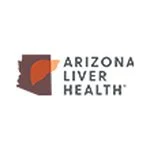Liver Cancer
What is Liver Cancer?
Hepatocellular carcinoma (HCC) is the most common type of primary liver cancer (cancer that originates in the liver).
Who can get Liver Cancer?
The risk of HCC is higher in people with long-term liver diseases including cirrhosis from any cause, hepatitis B, hepatitis C, or fatty liver disease caused by either alcohol or metabolic factors.
Many liver cancer cases are related to hepatitis B virus or hepatitis C virus infections. Most people don’t know they have the virus.
Other behaviors and conditions that increase risk for getting liver cancer are:
- Excessive alcohol use
- Cirrhosis (scarring of the liver, which can also be caused by hepatitis and alcohol use).
- Obesity
- Diabetes
- Having hemochromatosis, a condition where the body takes up and stores more iron than it needs.
- Eating foods that have aflatoxin (a fungus that can grow on foods, such as grains and nuts that have not been stored properly).
How is Liver Cancer Diagnosed?
The diagnosis of HCC is usually made by imaging tests such as ultrasound, CT, or MRI and tumor marker blood tests (alpha feto-protein). In some cases, a liver biopsy may be done to confirm the diagnosis of HCC.
How is Liver Cancer Treated?
- Treatment Options: Treatment will depend on the size and location of the HCC, liver function, and overall health. There are multiple ways of treating liver cancer, sometimes used in combination.
- Surgery: Small tumors in patients whose liver disease is not advanced can sometimes be surgically removed. Surgery to remove the cancer and a margin of healthy tissue that surrounds it may be an option for people with early-stage liver cancers who have normal liver function.
- Liver transplant surgery: Surgery to remove the entire liver and replace it with a liver from a donor may be an option in otherwise healthy people whose liver cancer hasn’t spread beyond the liver.
- Destroying cancer cells with heat or cold
- Ablation: (complete eradication) procedures to kill the cancer cells in the liver using extreme heat or cold may be recommended for people who can’t undergo surgery and have small tumors. These procedures include radiofrequency ablation, cryoablation, and ablation using alcohol injection or microwave
- Delivering chemotherapy or radiation directly to cancer cells.
- Using a catheter that is passed through your blood vessels and into your liver, doctors can deliver chemotherapy drugs (chemoembolization) or tiny glass spheres containing radiation (radioembolization) directly to the cancer cells to block off the artery feeding the tumor
- Drug therapy: Both oral and intravenous drugs may help slow the progression of the disease in people with advanced liver cancer, especially in those cases where other therapies are not effective or stop working.
- Radiation therapy: Radiation therapy using energy from X-rays or protons may be recommended to shrink the tumors and slow the growth if surgery or other treatments are ineffective. A specialized type of radiation therapy, called stereotactic body radiotherapy (SBRT), involves focusing many beams of radiation simultaneously at one point in your body with great accuracy
- Clinical trials offer an opportunity to try new liver cancer treatments that are in development.
How do I get screened for Liver Cancer?
The most common form of liver cancer in patients with cirrhosis is hepatocellular carcinoma (HCC). This cancer can sometimes be diagnosed in patients without cirrhosis but is most common in patients with cirrhosis.
Your risk of developing HCC increases the longer you have cirrhosis. Screening for HCC involves a blood test called alpha-fetoprotein (AFP), as well as some form of liver imaging (ultrasound, CT or MRI). Surveillance should be done every 6 months. If a lesion is seen, this may prompt additional testing such as detailed imaging, or a biopsy in some cases.
What vaccines do I need?
- Patients with chronic liver disease should be immunized against hepatitis A virus (HAV) and hepatitis B virus (HBV).
- The inactivated (injected) influenza vaccine is recommended annually.
- The Pneumovax (pneumonia) vaccine is also recommended for adults over age 60.
- Other vaccines should be discussed with your provider in clinic.

